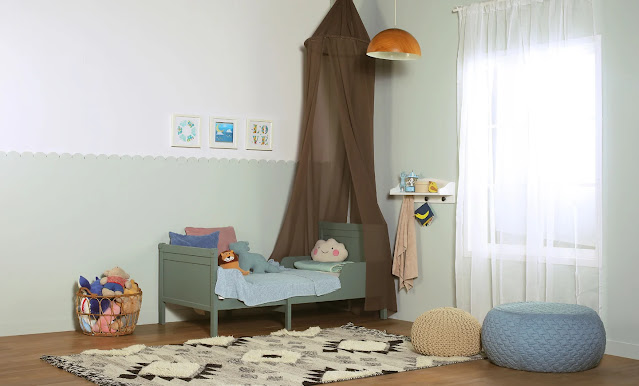 |
| Pastel Forest |
Nurture bits of creativity and make a difference to your children’s world today with the 2023 Kids Collection.
 |
| Pastel Forest |
Does the term "Neurofibromatosis Type 1" (NF1) bring back any memories? Although NF1 is regarded as a rare disease, more Malaysians than we realise are afflicted. NF1 is an autosomal dominant genetic condition that has a 50:50 chance of being passed down from one's parents or developing due to a spontaneous mutation in the NF1 gene. The multisystem disorder NF1 is characterised by the growth of tumours on nerve tissue, changes in skin pigmentation, and other potential side effects that may affect different bodily systems.
Children can develop the disease at a young age, with NF1 being diagnosed in 1 in 3,000 children worldwide, according to estimates. It can be difficult for parents to recognise the beginning of the disease in their child because the early symptoms can include light-brown spots (café au lait macules) on the skin or bumps developed either on or under the skin (neurofibromas), with a risk of developing optic glioma later in life.
Plexiform neurofibromas (PNs), the majority of which are present at birth, may be experienced by 30%–50% of NF1 patients. PNs can severely impair growth and function and cause severe disfigurement. Because other symptoms of NF1 include tumours that develop on the nerves, causing visible bumps that may attract unwanted attention in public, patients often also experience a significant psychosocial burden.
 |
| Puan Nadiah Sharing her thoughts about the importance of having awareness |
Due to the significance of the topic, a group of experts including Professor Dr. Thong Meow Keong, Consultant Clinical Geneticist, Department of Paediatrics, University of Malaya Medical Centre, Dr. Ngu Lock Hock, Head of Department, Department of Genetics, Hospital Kuala Lumpur, Azrul Mohd Khalib, Founder and Chief Executive Officer of the Galen Centre for Health and Social Policy, and Puan Nadiah Hanim binti Abdul Latif, President of Malaysian Rare
"Removing barriers to awareness is an essential step to improving understanding of NF1 not just with the public but also among healthcare practitioners," said Dr. Ngu Lock Hock, Head of Department, Department of Genetics, Hospital Kuala Lumpur. Ideally, we can accomplish this by incorporating information about rare diseases into medical curricula and raising awareness through social media. In the field of rare diseases, collaboration with patient support organisations is essential for launching funding and policy changes.
 |
| Visit www.learnNf1.my! |
"NF1 is a disease that requires input from various medical teams, including neurologists, geneticists, hemato-oncologists, surgeons, and other experts from various disciplines," said Professor Dr. Thong Meow Keong, Consultant Clinical Geneticist, Department of Paediatrics, University Malaya Medical Centre, in a speech at the event. Because of this, managing NF1 through a multidisciplinary approach is a necessary step forward.
 |
| How does your doctor know you have NF-1? |
 |
| Find out symptoms on verifying NF-1 |
The latest thematic series of the SAFE STEPS Kids programme, SAFE STEPS Kids Climate Change, has been introduced by Prudence Foundation, the community investment arm of Prudential plc. The new series aims to educate kids about climate change and easy steps they can take to make the planet healthier and safer by using well-known cartoon characters like We Bare Bears and Gumball. The Malaysian Red Crescent (MRC) will roll out the programme in Malaysia. It was created in collaboration with the International Federation of Red Cross and Red Crescent Societies (IFRC) and Warner Bros. Discovery's Cartoon Network.
The series was officially launched in Kuala Lumpur, Malaysia by Yang Berhormat (YB) Tuan Nik Nazmi bin Nik Ahmad, Minister of Natural Resources, Environment and Climate Change and Marc Fancy, Executive Director of Prudence Foundation.